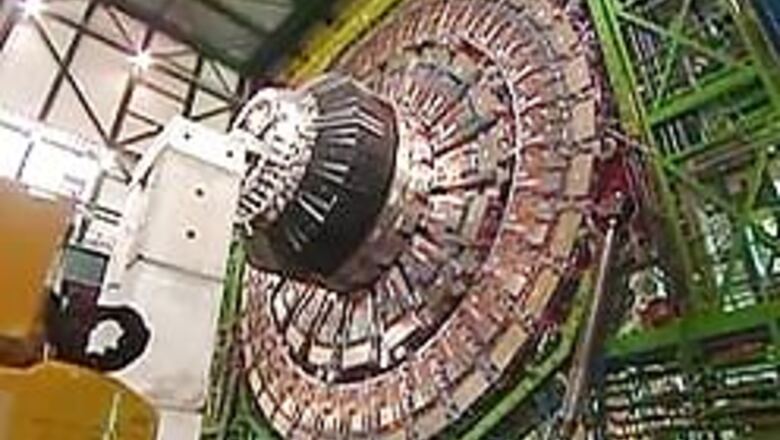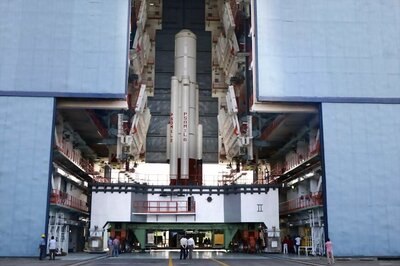
views
Geneva: A technical glitch has forced scientists to shut down the huge particle-smashing machine built to simulate the conditions of the "Big Bang" for at least two months, they said on Saturday.
The European Organization for Nuclear Research (CERN) said there had been a major helium leak on Friday into the tunnel housing the biggest and most complex machine ever made.
Just 10 days ago, scientists had celebrated the successful start of the Large Hadron Collider (LHC) under the Swiss-French border, hoping it would revamp modern physics and unlock secrets about the universe and its origins.
In order to fix the problem, the machine will have to be warmed up from its operating temperature of minus 271.3 degrees Celsius, spokesman James Gillies said. "Because the LHC is a superconducting machine that works at very low temperatures, in order to get in and fix it we've got to warm it up, then we go and fix it, and then we cool it down again, and that's a process that's likely to take two months," he said. The organisation said strict safety regulations had ensured there was no risk to people from the malfunction.
The project has had to work hard to dismiss suggestions by some critics that the experiment could create tiny black holes of intense gravity that could suck in the whole planet. Since the machine started up earlier this month, scientists have successfully sent particle beams around the accelerator.
The next step will be to smash the beams into each other to trigger tiny collisions at nearly the speed of light. This will be an attempt to recreate on a miniature scale the heat and energy of the Big Bang, the explosion generally believed by cosmologists to be at the origin of our expanding universe.
CERN said it thought the leak was prompted by a faulty electrical connection between two magnets, which probably melted at high current, leading to mechanical failure. When the LHC starts up at full speed, it will be able to engineer 600 million collisions every second between protons travelling around its 27-km underground chamber at 99.99 percent of the speed of light.
CERN officials said minor glitches were to be expected, given the intricacy of the $9 billion machine. "It's a very complicated machine, we've always known that there's the possibility of this sort of incident in the start-up phase and if it happens, then it's a two-month off time," said Gillies.



















Comments
0 comment